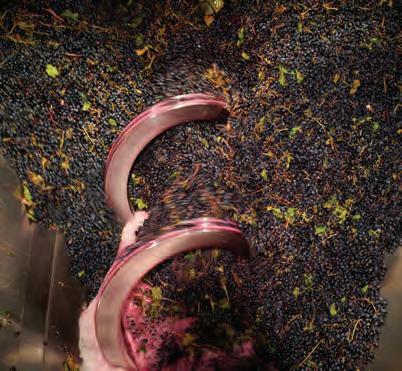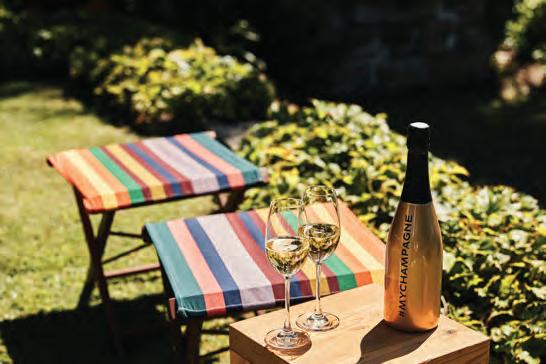
8 minute read
Global Champagne exports in decline yet Aussies still drinking up
Global Champagne exports in decline in COVID yet Aussies still drinking up
THE UNPRECEDENTED HEALTH AND ECONOMIC CRISIS BROUGHT ABOUT BY THE COVID19 PANDEMIC HAS BEEN PARTICULARLY CHALLENGING FOR THE CHAMPAGNE SECTOR.
Advertisement
Overall global Champagne exports declined by 17.9% in 2020, with losses in France and most international markets; by mid-August 2020, the region was predicting severe financial losses and confronting the difficulties of safely and sanitarily managing 100 000 seasonal workers required in the vineyards of Champagne for what turned out to be the earliest harvest in recorded history.
However, as the Covid19 pandemic continues to have an impact on the pace of everyday life for most Australians, our consumption of Champagne has not declined. It has only increased.
In fact, the export figures for 2020 released by Comité Champagne in April this year showed an overall increase of 11.2% in volume, meaning over 8 ½ million (8 516 583 to be precise!) bottles of Champagne arrived in Australia - the second-best year for Australian Champagne imports in history! The value of the Australian market also increased by over 11%, positioning Australia as the 7th largest export market in the world by value. The outlook for 2021 shows the same strong growth markers with monthly indicators revealing the demand for Champagne wines has continued in Australia, even with a large proportion of the population under harsh restrictions.
The public lockdowns and government restrictions have seen a behavioural shift by many Australian Champagne consumers to online retail. This represents both personal research of preferred Champagne brands as well as Champagne sales. Many retailers and Champagne importers have described an increase in online traffic and sales and taken an adaptive response to services such as home deliveries and ‘click and collect’. However, this is a fast-developing area for Champagne retail, and it will be interesting to see how this trend continues to evolve, or if the Australian consumer chooses to return to traditional retail stores.
The largest category of Champagne exported to Australia continues to be
the brut non-vintage style and while this makes up 92% of our market, this is not the whole picture of the diversity of Champagne in Australia. There were small increases in prestige cuvée, rosé and vintage Champagnes, but one of the most interesting increases is the number of Champagne brands that are currently available. Australia is a unique and established market for Champagne and there are now over 260 different Champagne companies exporting their cuvées here. Other international markets, with larger populations do import a much larger proportion of Champagne marques, but it is important to note that this increase reflects Australia’s enduring thirst for ‘something different’ and that Champagne from both the Houses and Growers make up this increase.
At the end of July 2021, the global export market for Champagne appears to have successfully recovered to roughly prepandemic levels, but in Australia the result is even more impressive.
Australia is a unique and long-established market for Champagne, but the existing structure of our market seems to have changed. Where Australians traditionally enjoyed Champagne as an aperitif or with a celebratory dinner, they are now potentially opening a bottle to celebrate making it the end of another week of lockdown! Along the east coast, many of our best restaurants and bars remain closed and large social gatherings are currently prohibited, but still the popularity of Champagne continues unabated as the Australian consumer demands the authenticity and quality of Champagne wines.
CHAMPAGNE DAY: FRIDAY OCTOBER 22ND
As we head into the into the traditional ‘Champagne Season’ many Australians are finding new ways to enjoy a glass of their favourite Champagne. For Champagne Day 2022 Comité Champagne has created a countdown website for anyone to be part of the fun.
Whether you are a commercial onpremise business, or retailer looking to host a Champagne event, or even if you are simply celebrating at home or in the back yard, it is easy to participate in this international day.
Simply register your event at www. champagneday.champagne.fr/ and tag your favourite images on social media with the hashtag #Champagneday and enjoy the day anyway you can.
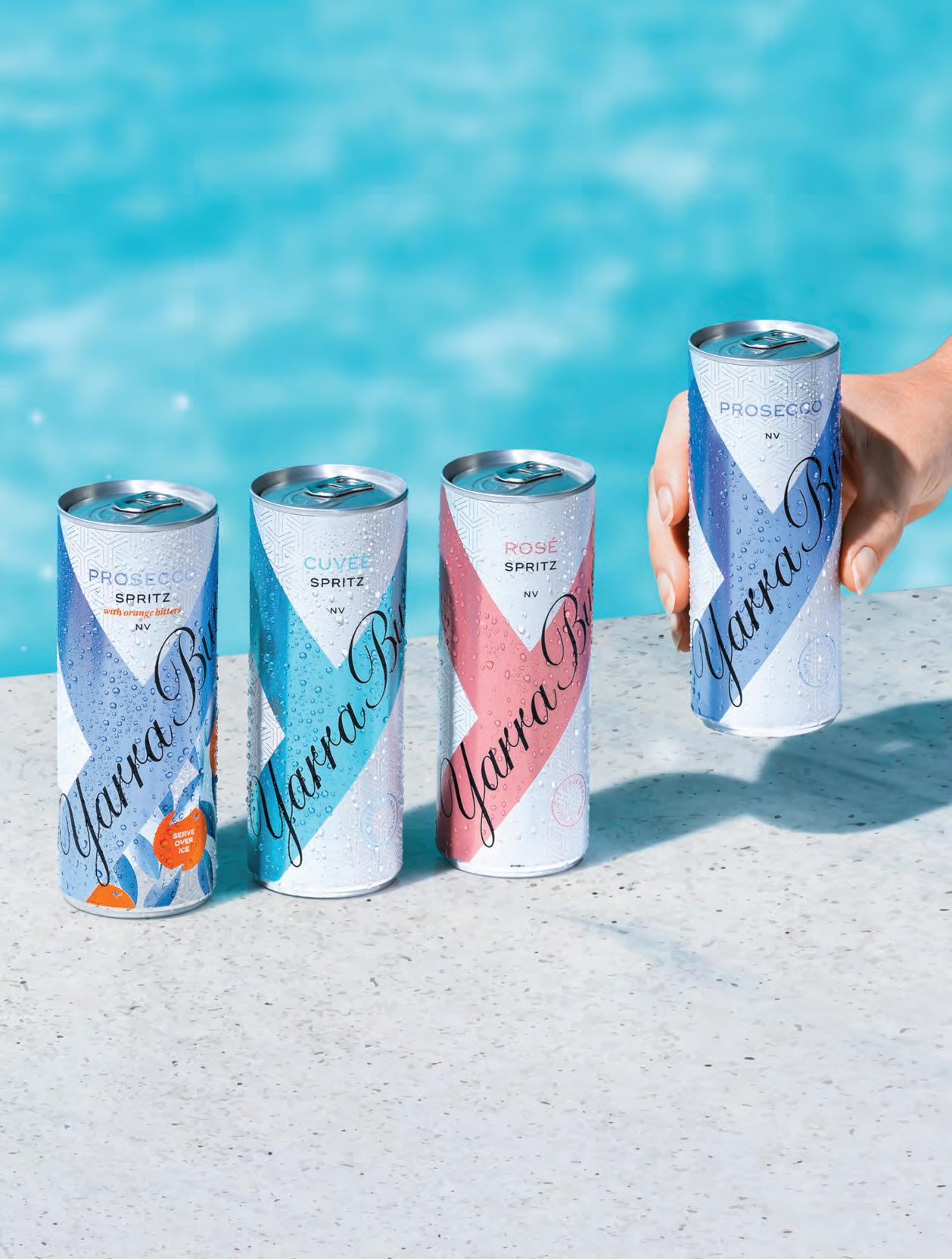
DUXTON VINEYARDS
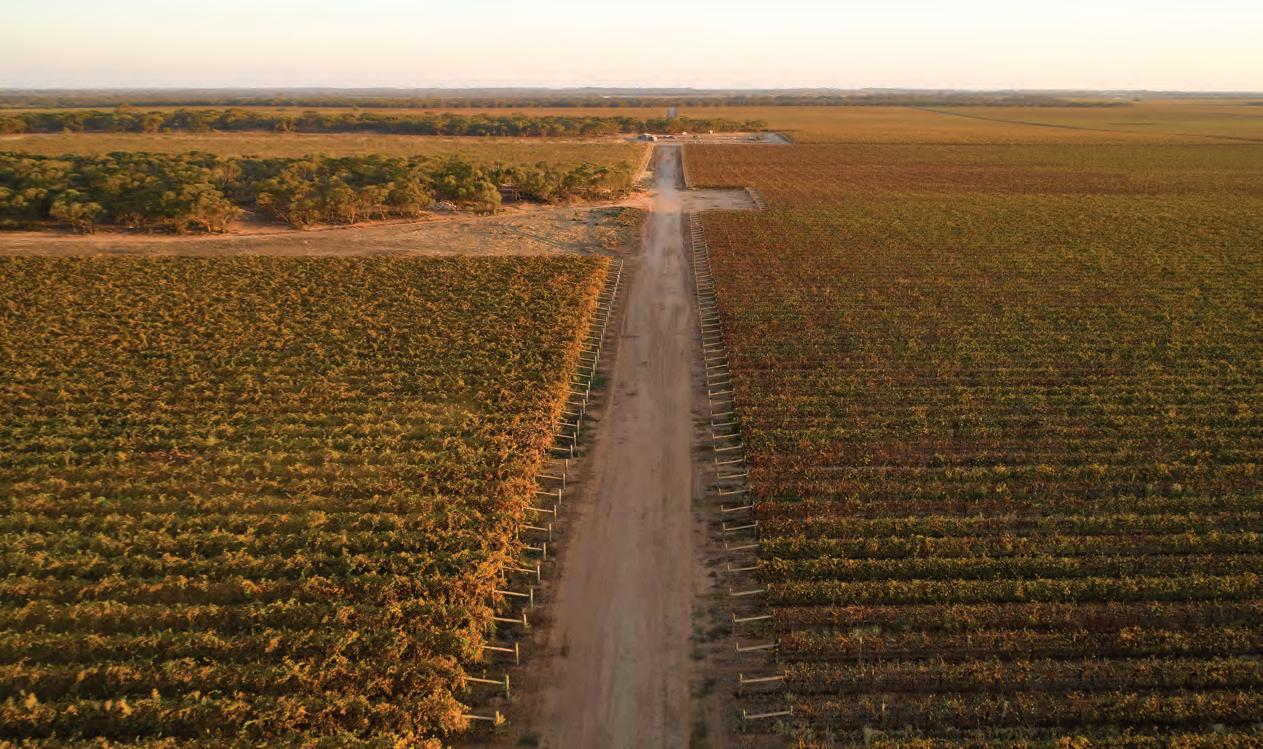
A MODERN VISION FOR AUSTRALIAN WINEMAKING
DRINKS TRADE SPEAKS TO WAYNE ELLIS, GENERAL MANAGER OF DUXTON VINEYARDS, ONE OF AUSTRALIA’S LARGEST GRAPE PRODUCERS, WITH AN INCREDIBLE FOOTPRINT SPANNING ACROSS THE MILDURA AND THE SUNRAYSIA REGIONS OF NSW. WE GAIN INSIGHTS INTO THE INNOVATION AND FUTURE-FORWARD MODEL BEHIND THIS CONTEMPORARY WINEMAKING GIANT, AND HOW IT IS LEADING THE WAY FORWARD FOR A MORE SUSTAINABLE WINE INDUSTRY.
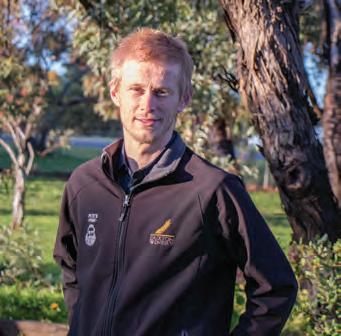
Could you speak to the origins of Duxton Vineyards and its business model? What is Duxton’s purpose/ vision? Who is behind it?
Duxton Vineyards is a venture founded in 2015, administered by Duxton Capital Australia. Duxton Vineyards’ total vineyard area is 2,465 hectares, making Duxton Vineyards the fifth largest vineyard land holding in Australia. We produce 70,000 tonnes of diverse grape varieties across the Southern Murray Darling Region, but in addition to our core wine grape assets, Duxton Vineyards also owns 24 hectares of citrus orchards and operates a commercial nursery for its replanting requirements and contract work for other growers. In July 2019, Duxton Vineyards acquired the historic Stanley Winery, Australia’s fifthlargest winery, providing our business with control of its supply chain from nursery to wine.
Duxton Vineyards purpose is to be the partner of choice for customers wishing to purchase grapes, bulk wine or bottled wine from warm-climate regions. We supply branded products as well as partner on own-label products to help deliver diverse solutions for customers.
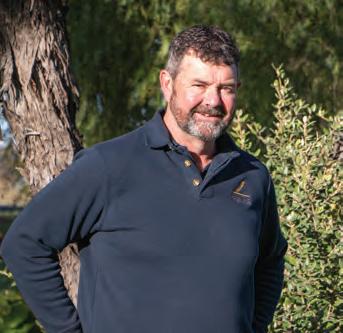
Wayne Ellis, General Manager of Duxton Vineyards
Duxton Vineyards is one of Australia’s largest vineyard holders yet prides itself on being nimble, agile and personable. How do you maintain high-quality products and efficient operations while upholding high customer and B2B service standards?
Duxton Vineyards has an experienced and highly credentialled team of industry experts at the helm across our vineyards, winery, and commercial operations. We look for the right expertise in all aspects of our business to ensure we can pass on that knowledge and advice to our stakeholders and consumers. Tony Allen, our Chief
Dylan Klingbiel, Environmental Manager of Duxton Vineyards
Winemaker, holds over thirty-years’ experience within the wine industry, for example. While Scott Bell, our Commercial Director, brings extensive experience across a wide range of industry sectors including wine, retail, manufacturing and sales. We also have a dedicated Environmental Manager, Dylan Klingbiel, who manages all stages of development and implementation of our environmental strategies.
It is this close-knit team of experts and our pro-active customer service approach that makes us very different to other largescale vineyard holders.
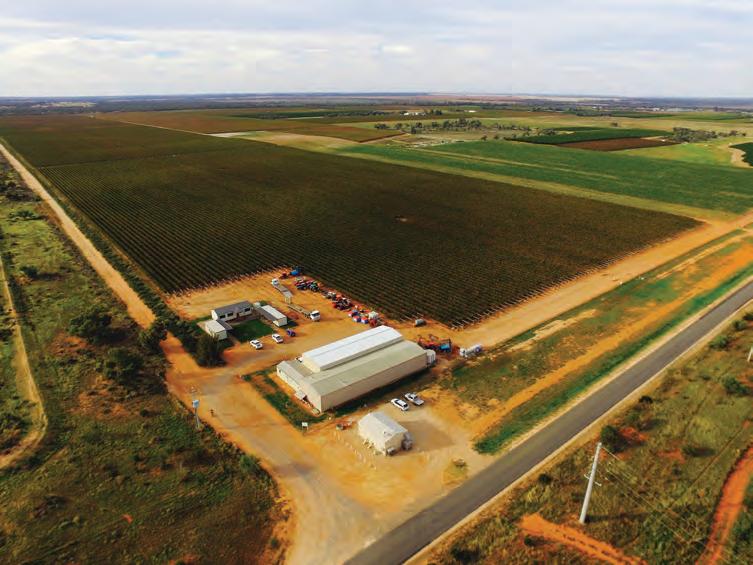
Duxton Vineyards is a firm advocate for sustainable wine production across all levels. Could you speak to some of the sustainability initiatives that are currently underway?
Duxton Vineyards is a firm advocate for sustainable wine production across all levels. We have our Freshcare Australian Wine Industry Standard of Sustainable Practice certification in both Viticulture and Winery and are currently the largest certified vineyard in Australia.
Duxton Vineyards seeks to assist in reversing agriculture’s adverse contribution to Australia’s environment by applying regenerative farming practices to the land it operates. We reduce the use of synthetic fertilisers through the application of organic inputs including compost and biological stimulants microbes. The healthy soils retain moisture and nutrients better, allowing for strong, resilient vines against harsh climate events. This increased microbial diversity improves air flow, which is extremely important in preventing disease on the grapes.
Duxton Vineyards also maintains over 2,400 hectares of prescribed native vegetation area which not only sequesters carbon, but also preserves the natural ecosystem for the flora and fauna. We have a strong working relationship with the Barkindji and Maraura elders Environment Team and the University of Adelaide, to help us in our revegetation projects in which we plant native flora to establish a native insectarium that attracts a diverse range of beneficial insects to assist in naturally controlling invasive pests without requiring the use of chemical insecticides, while also allowing for native flora to flourish. As our land is also a recognised sanctuary for the endangered Regent Parrot species, we work closely with the NSW government on the Saving our Species Program.
Duxton Vineyards also uses solar power on several of our vineyards to reduce our overall carbon footprint. One vineyard in particular couple the use of solar power with a battery bank, allowing that site to be completely off-grid, which is great in saving costs. Typically, a site of this size would have an annual electricity bill of approximately $4000-$5000 per annum. For several years now, we have been bill-free at this site.
What sets Duxton Vineyards apart from other wine production companies in the industry?
As you can see, we are doing really well in reaching our environmental objectives that make us a dependable sustainable brand. And as one of Australia’s largest vineyard holders, we have almost unrivalled sourcing capability with over 25 different varietals on vine. Yet, our point of distinction is that we are agile enough to help customers meet new opportunities and supply current customer favourites.
Although Duxton Vineyards is significant in scale, we do not operate or act ‘big Corporate’. We are nimble and are motivated by helping customers meet their diverse grape and wine needs. We’ve done this by pivoting away from purely grape and bulk wine sales to also include bottled wine sales and own label offers. By doing so, we are able to offer our brands, Pete’s Pure, Twill & Daisy and Brave to Be Murray as well as capability to develop and produce own label or private label offerings to satisfy our customer’s needs.
